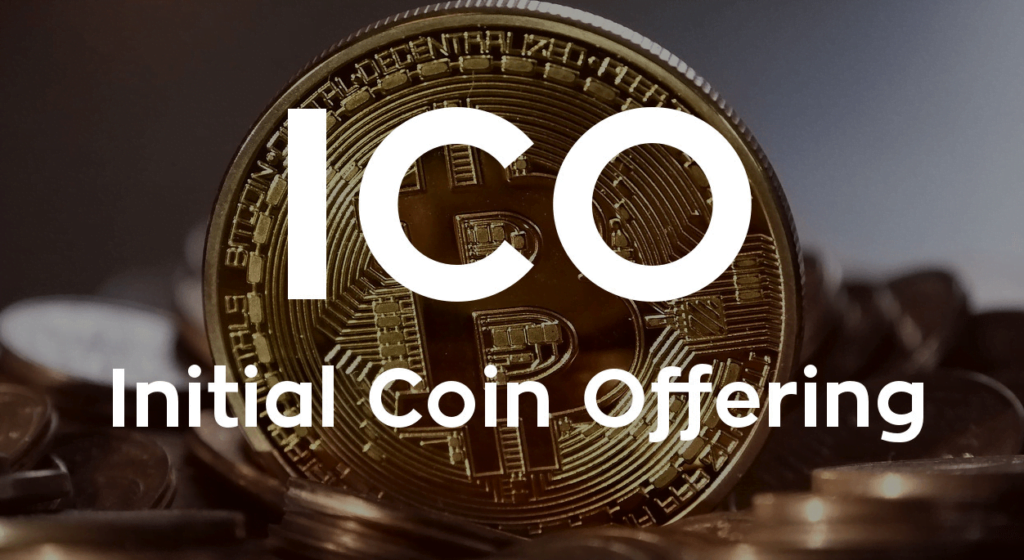Understanding Initial Coin Offerings (ICOs): Risks and Rewards

Table of Contents
In the fast-paced realm of blockchain technology and digital finance, Initial Coin Offerings (ICOs) have emerged as a revolutionary fundraising mechanism, reshaping the traditional landscape of capital generation. ICOs represent a novel way for startups and projects to secure funding by issuing digital tokens, leveraging the decentralized power of blockchain. However, this innovative approach is not without its intricacies and challenges.
As investors and entrepreneurs alike seek to capitalize on the potential rewards of ICOs, a comprehensive understanding of the risks and rewards is imperative. In this article, we delve into the intricate world of ICOs, shedding light on their inner workings, potential benefits, and inherent risks. Join us as we unravel the complexities of this exciting yet volatile phenomenon and equip you with the knowledge to make informed decisions in the dynamic world of cryptocurrency investment.
Untangling ICOs: Unveiling the Potential Profits and Pitfalls of Token Crowdfunding
Initial Coin Offerings (ICOs) have emerged as a revolutionary method of fundraising in the world of cryptocurrencies and blockchain technology. An ICO involves the issuance of digital tokens to investors in exchange for cryptocurrencies like Bitcoin or Ethereum. These tokens often serve a dual purpose – they can represent units of value within a project’s ecosystem and can also be traded on various cryptocurrency exchanges.
Potential Profits: ICOs offer unique investment opportunities that can yield substantial profits for both early adopters and astute investors. Early participation in a promising ICO can grant investors access to tokens at lower prices, potentially resulting in significant gains when the project reaches maturity and the tokens appreciate in value. Moreover, if the project gains widespread adoption, the tokens’ demand can surge, leading to further value appreciation.
Pitfalls: While ICOs hold immense promise, they are not without their pitfalls. One significant concern is the lack of regulatory oversight in many jurisdictions, which exposes investors to potential scams and fraudulent projects. The decentralized nature of ICOs can make it challenging to verify the legitimacy of a project, and unscrupulous actors can take advantage of this ambiguity. Additionally, the high volatility of cryptocurrency markets can lead to rapid and unpredictable swings in token values, potentially resulting in substantial losses for investors.

From Hype to Reality: A Comprehensive Analysis of ICOs and Their Dual Nature
Initial Coin Offerings (ICOs) have been both a source of excitement and skepticism within the blockchain and cryptocurrency landscape. At their core, ICOs are a novel form of crowdfunding, enabling startups and projects to raise capital directly from a global pool of investors. This process bypasses traditional intermediaries like venture capitalists and banks, promising greater accessibility and inclusivity.
The Hype: ICOs have garnered significant attention due to their potential for exponential returns. The allure of investing in a project’s early stages, coupled with the possibility of backing the next groundbreaking technology, has fueled the ICO hype. This hype has led to a rush of investors seeking to capitalize on emerging trends and technologies, driving up demand for ICO tokens and often contributing to initial price surges.
The Reality: However, the ICO landscape has also seen its fair share of disappointments and controversies. Many projects have failed to deliver on their promises, and some have turned out to be outright scams. This reality check has prompted regulatory bodies in various countries to intervene and establish guidelines for conducting ICOs. As a result, the ICO landscape is evolving, with an increasing focus on transparency, accountability, and compliance with existing financial regulations.
Cryptocurrency Frontier: Delving Deep into ICOs – Opportunities and Threats Explored
In the rapidly evolving realm of cryptocurrencies, Initial Coin Offerings (ICOs) have emerged as a prominent and controversial phenomenon. Representing a new frontier of fundraising, ICOs offer unique opportunities and potential rewards, but they also carry significant threats that warrant careful consideration.
Opportunities: ICOs have democratized investment by allowing anyone with an internet connection to participate in funding innovative projects. This accessibility has the potential to level the playing field, enabling both retail and institutional investors to support technological advancements and disruptive ideas. ICOs can also facilitate the rapid development and deployment of decentralized applications, fostering innovation and pushing the boundaries of what is possible with blockchain technology.
Threats: Yet, the cryptocurrency frontier is not without its dangers. The lack of comprehensive regulation and oversight in the ICO space has paved the way for fraudulent schemes and scams. Investors are at risk of falling victim to projects that overpromise and underdeliver, leading to financial losses and eroding trust in the broader cryptocurrency ecosystem. Moreover, the speculative nature of ICO investments can fuel market volatility, exposing participants to sudden and substantial fluctuations in token prices.
Also read: Exploring the Potential of Aether: Decentralized Finance and Beyond
Unlocking ICOs: A Definitive Guide to Grasping the Risks and Rewards of Token Fundraising
Initial Coin Offerings (ICOs) have emerged as a revolutionary fundraising mechanism within the realm of cryptocurrency and blockchain technology. This definitive guide aims to provide a comprehensive understanding of ICOs, shedding light on their intricacies, risks, and rewards.
- What are ICOs? ICOs, short for Initial Coin Offerings, are a form of crowdfunding used by blockchain projects to raise capital. In an ICO, project developers issue a new cryptocurrency token or coin to investors in exchange for established cryptocurrencies like Bitcoin or Ethereum.
- The ICO Process: How it Works ICOs typically involve a project’s team creating a whitepaper that outlines the details of the project, its goals, technological aspects, and how the funds raised will be used. Investors interested in the project then purchase the newly issued tokens using established cryptocurrencies.
- Risks Associated with ICOs While ICOs offer exciting opportunities, they come with inherent risks such as regulatory uncertainty, lack of investor protection, and potential for fraudulent projects. Due diligence is crucial, as investors may fall victim to scams or projects that fail to deliver on promises.
- Rewards of ICO Investments Successful ICO investments can yield substantial returns, as early supporters might benefit from the token’s value appreciation once the project achieves its goals. Additionally, ICOs provide access to innovative projects at an early stage, potentially offering unique investment opportunities.
- Regulatory Landscape The regulatory environment surrounding ICOs varies by jurisdiction. Some countries have embraced ICOs as a legitimate fundraising method, while others have imposed strict regulations or outright bans. Understanding the legal framework in your region is essential to avoid legal complications.
- Due Diligence and Research Thorough research is essential before participating in an ICO. Investors should assess the project’s whitepaper, team credentials, technology, market demand, and overall feasibility. Engaging with the project’s community and seeking expert opinions can enhance the quality of due diligence.
- ICO vs. Traditional Fundraising ICOs represents a departure from traditional fundraising methods like venture capital or initial public offerings (IPOs). They offer a more inclusive and global approach, enabling small investors to participate and potentially democratizing access to early-stage investments.
- Post-ICO Considerations After an ICO concludes, the project’s team has the responsibility to execute its roadmap and deliver on its promises. Token holders should monitor the project’s progress, development updates, and engagement with the community to ensure transparency and accountability.

Investing in the Future: Demystifying ICOs and Their Transformative Impact on Financial Landscapes
ICOs have introduced a paradigm shift in how projects raise capital and how investors engage with innovative ventures. This section delves into the transformative impact of ICOs on financial landscapes and the considerations for investors looking to participate in this evolving phenomenon.
- Disruption of Traditional Financing ICOs has disrupted traditional financing models by allowing projects to bypass traditional intermediaries, such as banks or venture capitalists. This decentralized approach has democratized fundraising and empowered entrepreneurs globally.
- Innovation Unleashed The ICO model has facilitated the launch of countless blockchain-based projects spanning diverse sectors like fintech, healthcare, supply chain, and more. These projects often introduce groundbreaking solutions and technologies that have the potential to reshape industries.
- Global Accessibility Unlike traditional investment avenues that may have geographic restrictions, ICOs have a global reach. This accessibility enables investors from around the world to participate in projects they believe in, fostering cross-border collaboration and investment opportunities.
- Liquidity and Secondary Markets The liquidity of tokens acquired through ICOs has introduced new dynamics. Secondary markets, such as cryptocurrency exchanges, enable investors to trade tokens, enhancing liquidity and potentially enabling early investors to realize gains.
- Educational Imperative The rise of ICOs underscores the need for widespread financial education. Investors must develop an understanding of blockchain technology, cryptocurrency markets, and the risks associated with investing in nascent projects.
- Balancing Risk and Reward Investors must approach ICOs with a balanced perspective on risk and reward. While the potential for significant returns exists, the volatility of the cryptocurrency market and the uncertainty surrounding new projects necessitate cautious decision-making.
- Regulatory Evolution The transformative impact of ICOs has prompted regulators to adapt and establish frameworks for this innovative fundraising method. Investors should stay informed about regulatory developments to ensure compliance and protect their investments.
- Diversification Strategy As with any investment, diversification is key. ICOs should be viewed as a part of a broader investment strategy, alongside traditional assets like stocks, bonds, and real estate. Diversification helps mitigate risks associated with the inherent volatility of the cryptocurrency market.
Also read: Aether Smart Contracts: Enabling Trustless Transactions
FAQS
Q1: What is an Initial Coin Offering (ICO)?
A1: An ICO is a fundraising method in which a new cryptocurrency or token is offered to the public in exchange for investment, typically using blockchain technology.
Q2: What are the potential rewards of investing in ICOs?
A2: Investors in successful ICOs can potentially gain significant returns if the value of the issued tokens or coins increases over time.
Q3: What are the main risks associated with ICO investments?
A3: ICOs carry risks such as regulatory uncertainty, fraudulent projects, lack of investor protection, and the potential for token value to decrease due to market volatility.
Q4: How do regulatory factors impact ICOs?
A4: The regulatory landscape for ICOs varies by country and can change rapidly. Some jurisdictions may classify tokens as securities, subjecting them to strict regulations, which can affect the legality and feasibility of ICO investments.
Q5: How can investors identify fraudulent ICO projects?
A5: Investors should conduct thorough research, scrutinize the project team’s credentials, assess the whitepaper for feasibility, and be cautious of unrealistic promises and guarantees.
Q6: What is the role of a whitepaper in an ICO?
A6: A whitepaper is a detailed document that outlines the ICO project’s concept, goals, technical details, and use of funds. It serves as a blueprint for potential investors.
Q7: Can ICO investments be illiquid?
A7: Yes, ICO tokens may have limited liquidity, making it challenging to sell them immediately after purchase. Investors might need to wait until the token is listed on exchanges.
Q8: Are there alternatives to ICOs for fundraising?
A8: Yes, Security Token Offerings (STOs) and Initial Exchange Offerings (IEOs) are alternatives that aim to address some of the regulatory and investor protection concerns associated with ICOs.
Q9: How can investors mitigate risks when participating in ICOs?
A9: Investors can reduce risks by conducting thorough due diligence, diversifying their portfolio, staying informed about regulatory developments, and being cautious of FOMO (Fear of Missing Out) behavior.
Q10: Are there success stories of ICOs that yielded high rewards?
A10: Yes, there have been ICOs that led to substantial profits for early investors, such as Ethereum and NEO. However, it’s important to note that past success does not guarantee future results.
Q11: How can a lack of investor protection impact ICO investments?
A11: A lack of investor protection can expose investors to scams, fraudulent projects, and the potential loss of funds without any recourse.
Q12: What role does market sentiment play in ICO investments?
A12: Market sentiment can significantly influence ICO investments. Positive sentiment can drive token prices up, while negative sentiment can lead to declines.
Q13: Are there any restrictions on who can invest in ICOs?
A13: Restrictions can vary by jurisdiction. Some ICOs may have limitations on who can participate due to regulatory requirements, such as accreditation or geographic restrictions.
Q14: How can an investor stay informed about ICO developments?
A14: Investors can follow reputable cryptocurrency news sources, join relevant online communities, and participate in discussions to stay updated on ICO developments.
Q15: What should investors consider before participating in an ICO?
A15: Investors should carefully assess the project’s legitimacy, team expertise, market demand, technological feasibility, and potential risks before committing funds to an ICO.




